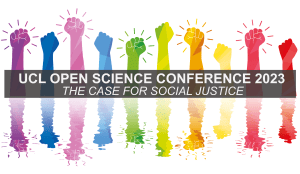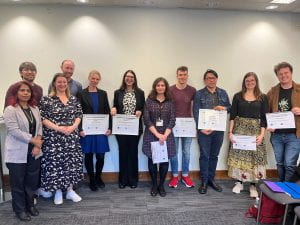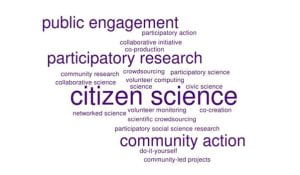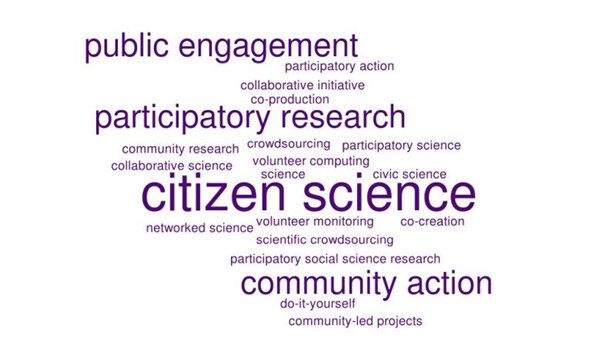OOSS Review of the Year
By Kirsty, on 14 January 2025
Here in the Office for Open Science & Scholarship we like to start every new year by taking a look back over the last and sharing our highlights with you.
In 2024 the Open Access Team facilitated the Gold open access publication of 3,963 papers. UCL Discovery continued to go from strength to strength, with over 53 million downloads. The publications repository now boasts over 185,000 open access items, including 24,900 theses, with over 15,500 uploads in the preceding twelve months.
The Research Data Management Team has had an equally productive year, publishing over 230 items in the data repository which has now exceeded 230,000 views and a similar number of downloads. They have reviewed over 30 data management plans and held classes for over 70 people, both online and in person. There are still seats available for term 2 that can be booked online.
Updates and publications
Across all of the teams that make up the Office we have published a whole host of documents and updates such as:
- New version of research data policy
- New-look RDR website
- Newly launched principles for Citizen Science
- Co-created UCL Principles of Authorship
- Open Science Case Studies
Our blog highlights
The blog has been super busy throughout the year with one of our personal highlights being the brilliant series of posts by Christine Daoutis, UCL’s Copyright Officer that looked at a range of issues around copyright in open science including a deep dive across three posts into Copyright and AI, how copyright exceptions can support your research and how copyright applies to Text and Data mining.
We also had some great events throughout the year that you can catch up on, from our annual Open Science Conference, the second annual Open Science & Scholarship Awards, and our first ever Citizen Science Community Event.
We also had a great time working with the UCL Digital Accessibility team throughout the year, they have been a great support in improving the accessibility of everything we do. We were able to highlight their work in one of our Newsletters and we also interviewed Ben Watson, Head of Digital Accessibility, who was a great sport and is an overall inspirational guy!
Upcoming in 2025
We have a great year ahead in 2025, we have the imminent publication of our next Operational plan, designed to push the team to bigger and better things for the office. We are hoping to get that out in the first quarter of the year, its just going through various stages of internal feedback before we can get it out there! We will be continuing to grow our newest social media channels LinkedIn and BlueSky, and if you don’t subscribe to our newsletter, now’s your chance!
We will also be challenging ourself to bigger and better things when it comes to our conference. You all know that we like to change it up and this year we are reaching out to friends and colleagues to change our conference into our first festival!
We will also be continuing the brilliant series with Ilan Kelman on the Risks and Opportunities of Open Science. We have already shared the first two parts but keep an eye out for the last three parts coming soon!
 Close
Close



















